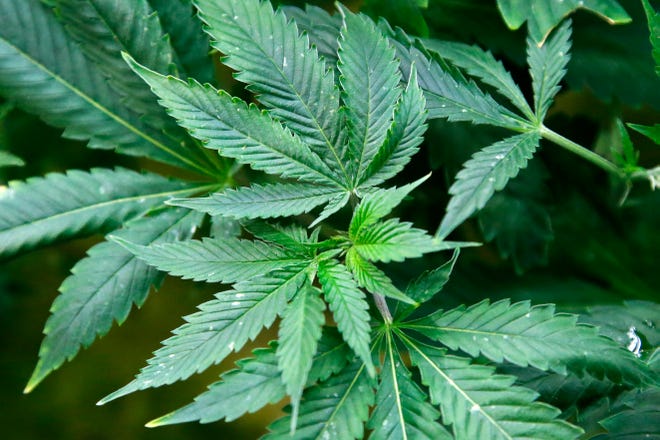WeedLife News Network
Medical marijuana coming to Mississippi: What you need to know

The passage of medical marijuana in Mississippi by voters Tuesday is being hailed as an historic vote.
Jay Czarkowski, a Boulder Colorado-based cannabis industry consultant who donated to the campaign to get medical marijuana approved in Mississippi, said his best advice to Mississippians is to become involve in the process of establishing the rules and regulations for a medical marijuana program.
"There isn't anything urgent; It will take time for this program," he said.
What do you need to know about medical marijuana in Mississippi? We provide answers:
Who will be able to use marijuana under the proposal?
Initiative Measure No. 65 amends the Mississippi Constitution to allow qualified patients with debilitating medical conditions — certified by licensed Mississippi physicians — to use marijuana.
How soon will it go into effect?
The Health Department would have to adopt rules and regulations by July 1, 2021, and begin issuing identification cards and treatment center licenses by Aug. 15, 2021.
The marijuana could only be provided by licensed treatment centers and the Mississippi Department of Health — whose board opposes the initiative — would regulate and enforce provisions of the amendment.
People or caregivers would have to have a medical marijuana identification card issued by the Health Department.
Medical marijuana in Mississippi:Voters approved Initiative 65.
Conditions medical marijuana could be used for are:
Cancer Epilepsy or other seizures Parkinson’s disease Huntington’s disease Muscular dystrophy Multiple sclerosis Cachexia (weakness and wasting due to chronic illness) Post-traumatic stress disorder HIV+ AIDS Chronic or debilitating pain Amyotrophic lateral sclerosis, or ALS Glaucoma Agitation from dementia Crohn’s disease Ulcerative colitis Sickle-cell anemia Autism with aggressive or self-injurious behaviors Pain refractory to appropriate opioid management Spinal cord disease or severe injury Intractable nausea Severe muscle spasticity Other conditions where a physician believes the benefits of marijuana would outweigh risks
What form of marijuana could people use, and how much?
The proposal allows patients to smoke or vape marijuana and use edible marijuana and other products.
A person could be prescribed up to 2.5 ounces of marijuana within a 14-day period. The weight of additives to edibles, topical products, ointments, oils, tinctures or other products would not count toward the weight limitation.
Could a patient smoke marijuana in public, or drive under the influence?
No.
It would remain unlawful for any person to smoke marijuana in a public place and a violation would carry a fine up to $100. The proposal also says patients would not be permitted to operate any motor vehicle, aircraft, train or boat while consuming or impaired by medical marijuana.
Historic vote:Mississippi voters approve new magnolia design for state flag. Here's what happens next.
Penalties for an applicant or licensee violating rules?
A fine up to $5,000 for a first violation and $25,000 for an subsequent violation. A person or licensee can also be removed from the program, placed on probation, suspended or censured for violations.
The Health Department has the authority to deny, suspend or revoke a license in any case in which there has been substantial failure to comply with the requirement of a licensee.
Where would people get the marijuana?
The Health Department will regulate and license treatment centers. These centers will be exempted from any criminal or civil sanctions for cultivating, transporting, acquiring or processing medical marijuana in compliance with regulations the Health Department creates.
Where could marijuana treatment centers be located?
No marijuana treatment center could be located within 500 feet of a school, church or licensed child care center. Local zoning ordinances, the proposal said, "shall not impair the availability of and reasonable access to medical marijuana" and zoning can't be any more restrictive on them than it is on retail pharmacies.

Will taxpayers foot the bill?
No.
The amendment "is required to pay for itself and would require no general fund appropriation." It would create three sources of revenue for the Health Department to use for the program, fees (up to $50) for identification cards, reasonable fees for treatment center licenses and an assessment up to the state's sales tax rate on the final sale of marijuana.
To get started, the proposal says the state treasurer "shall provide a line of credit" up to $2.5 million to implement the program, with the loans to be repaid from money the Health Department collects from the program.
The proposal says that based on revenue generated by Arizona's medical marijuana program, Mississippi's program is projected to generate $6 million a year.
The state Legislature won't have any say on funding of the medical marijuana program, and revenue the program generates "shall not revert to the general fund," but would be used by the Health Department to run and regulate the program.
Who can be a grower or seller of marijuana under the program?
A medical marijuana business, which is any business that has applied for and received a license from the Mississippi Department of Health to cultivate, process, test or sell medical marijuana. This may include: cultivation facilities (agricultural greenhouses where the plant is grown and harvested), testing facilities where the products are scientifically tested and approved, and medical marijuana treatment centers where patients can purchase the medicine.
Are there any legal challenges to medical marijuana in Mississippi?
Yes. Madison Mayor Mary Hawkins Butler filed an emergency petition to the Mississippi Supreme Court last month arguing Initiative 65 was improperly allowed on the ballot by the Secretary of State.
Butler argues the state Constitution requires signatures of qualified voters from any congressional district shall not exceed one-fifth of the total number of signatures. She says since Mississippi now has four congressional districts, it is a mathematical certainty that the number of signatures submitted in support of Initiative Measure No. 65 from at least one of the four congressional district exceeds 1/5 of the total number.
Mississippi had five congressional districts until the 2000 Census showed a decline in population, leading to a reduction of one district.
A 2009 state attorney general opinion said it was legal to get signatures for an initiative based on the five districts concept, although there is only four districts.
The state Supreme Court set Friday for Mississippi Secretary of State Michael Watson to respond to Butler's petition.
Copyright
© 420 Intel
When you subscribe to the blog, we will send you an e-mail when there are new updates on the site so you wouldn't miss them.

